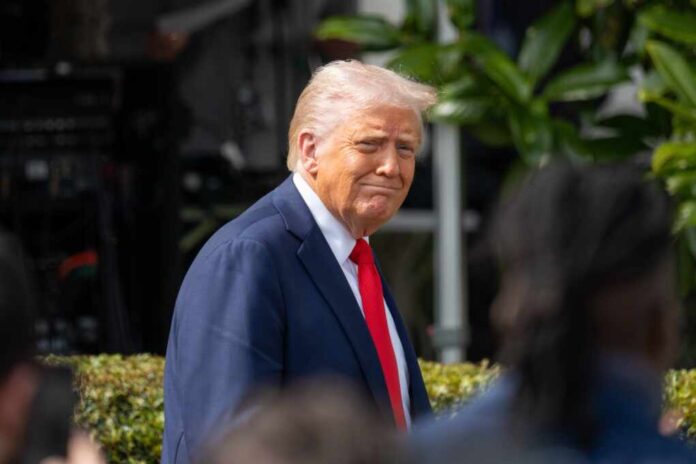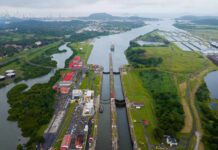
Donald Trump’s demand that Cambodia and Thailand cease fire before any further U.S. trade talks is sending shockwaves through Asia and Washington alike, raising questions about whether the new administration’s hardline approach will finally put American interests—and sanity—first.
At a Glance
- President Trump conditions new U.S. trade talks with Cambodia and Thailand on an immediate ceasefire.
- Trump’s bold stance comes amid a renewed push for Middle East peace and expansion of the Abraham Accords.
- Ceasefire negotiations in Gaza remain at a standstill, endangering broader regional normalization efforts.
- Trump lifts sanctions on Syria, signaling a major shift in U.S. foreign policy.
Trump Draws a Red Line: No Trade Without Peace
President Donald Trump has once again thrown the global establishment into disarray by telling Cambodia and Thailand, in no uncertain terms, that all U.S. trade negotiations are off the table until the two nations implement a ceasefire. This comes at a time when the world is desperate for American leadership—real leadership, not the apologies and appeasement that defined the last administration. Trump’s message is clear: if you want to do business with the United States, get your house in order and stop the violence. This is exactly the kind of common-sense, America-first policy that voters demanded and, frankly, the only thing that makes sense in a world where chaos seems to reign and American interests have too often taken a back seat.
Watch a report: Thailand, Cambodia agree to ‘Ceasefire’ talks
With this move, Trump isn’t just flexing American muscle—he’s making it painfully obvious that the days of endless, toothless diplomacy are over. Cambodia and Thailand, long used to the empty threats and red lines that mean nothing, are now facing a reality check. The United States under Trump is not going to bankroll instability. It’s a return to the kind of tough negotiating that once made this country the envy of the world, and the leftist hand-wringers in Brussels and at the UN can’t stand it.
💥💥💥💥💥💥💥💥
This is how we will have peace on earth for 1000 years….Trump speaks to Cambodia's PM, calls for a ceasefire and "END to the war" says that U.S. won't make a trade deal with either country "if they are fighting." pic.twitter.com/xt1Y8CnZ6H
— Melissa Redpill – Freedom Force (@MelissaRedpill) July 26, 2025
Tying Trade to Peace: A New Model for U.S. Foreign Policy
The Trump administration’s approach represents a seismic shift from the Obama and Biden years—years when foreign adversaries could count on lectures, not consequences. By tying economic opportunity directly to peace on the ground, Trump is reminding world leaders that the American market is a privilege, not a right. This new standard isn’t just about Cambodia and Thailand. It’s the cornerstone of a broader diplomatic strategy being deployed across the world, most notably in the Middle East, where Trump’s efforts to expand the Abraham Accords are hitting roadblocks thanks to, you guessed it, the same old intransigence from groups like Hamas and their enablers.
Just weeks ago, Trump hosted Israeli Prime Minister Benjamin Netanyahu in Washington to hammer out a plan for ending the Gaza war and building on the Abraham Accords. The message was unmistakable: peace comes first, trade and prosperity follow. Trump’s lifting of U.S. sanctions on Syria takes this message even further, opening the door to regional integration—but only if the violence stops. It’s a bold gamble, and one that flies in the face of the timid, incrementalist foreign policy that has failed for decades.
Ceasefire Deadlock Threatens Regional Progress
Despite Trump’s efforts, the reality on the ground remains grim. Ceasefire talks in Gaza have ground to a halt, with both U.S. and Israeli negotiators pulling out of discussions in Qatar after Hamas once again rejected reasonable proposals. The administration’s top negotiators have made it clear: Hamas is not interested in peace, only in prolonging the suffering of innocent civilians. Qatar and Egypt, playing their usual roles as mediators, have pledged to continue talks, but expectations are low. The longer this deadlock continues, the harder it becomes to sell the dream of a stable, prosperous Middle East—let alone justify any American involvement or aid to those who refuse to make the hard choices.
Back in Asia, the message is the same. Cambodia and Thailand can either get serious about peace or watch as American trade passes them by. This is what true leverage looks like, and it’s about time Washington rediscovered it. For too long, we’ve watched as rogue regimes cashed American checks while ignoring American values. Trump’s approach flips the script, reminding the world that the United States sets the terms—and that those terms are non-negotiable when it comes to violence and instability.

























